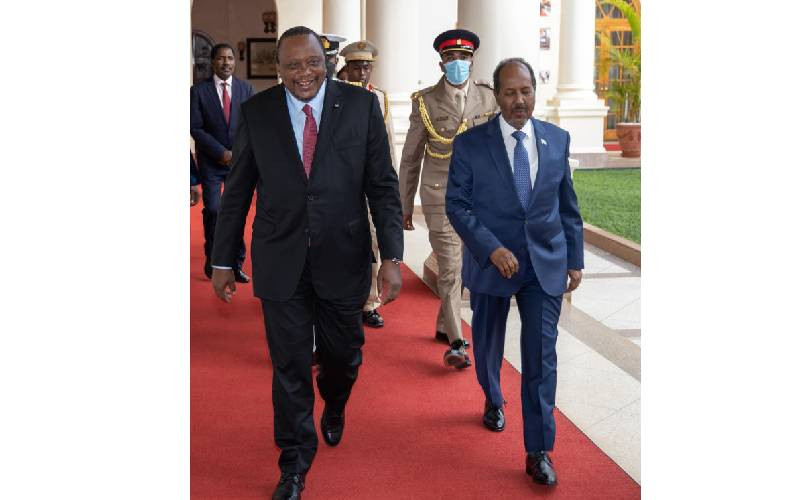
The resumption of miraa (khat) exports and Kenya Airways scheduled flights to Somalia on Friday is anticipated to improve ties between Nairobi and Mogadishu, following recent tensions over trade and a maritime border dispute.
The welcome development is contained in a joint communiqué released at State House, Nairobi, following an official visit by Somali President Hassan Sheikh Mohamud. And the importance and urgency of the truce between the two countries is demonstrated by the timing of the meeting – just 40 days after Mohamud’s swearing in ceremony and 24 days before Kenya goes to the polls, ultimately setting the stage for Uhuru’s exit from power.